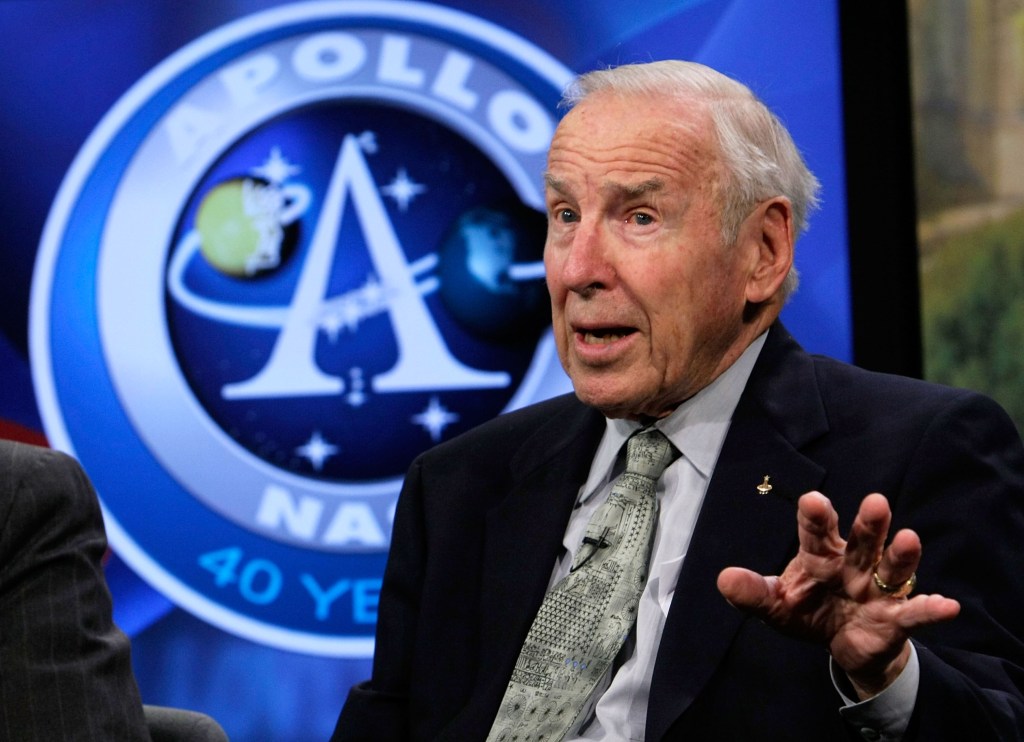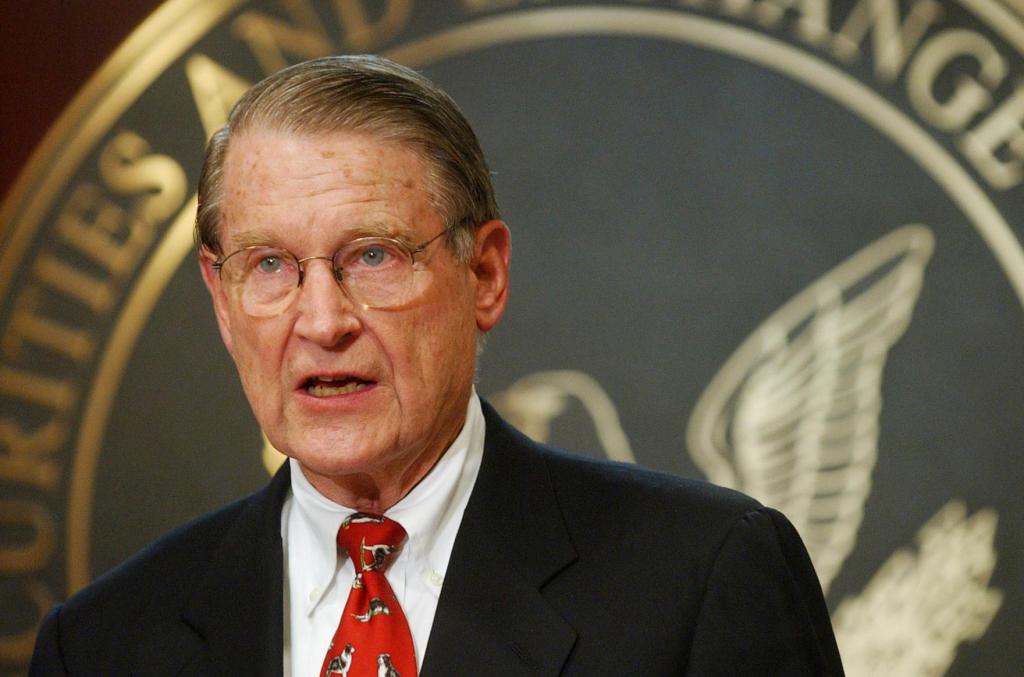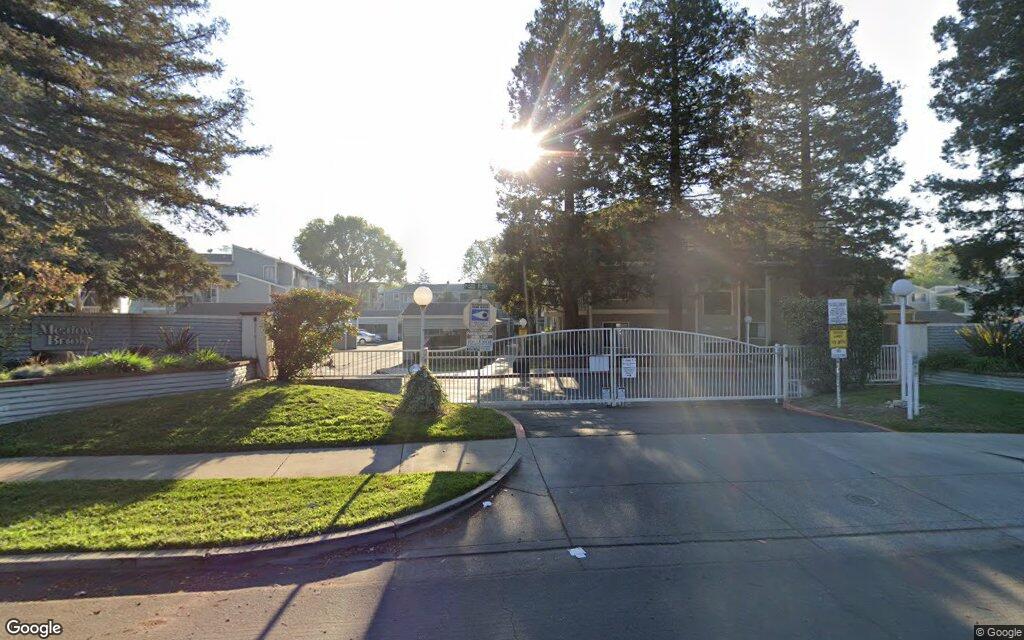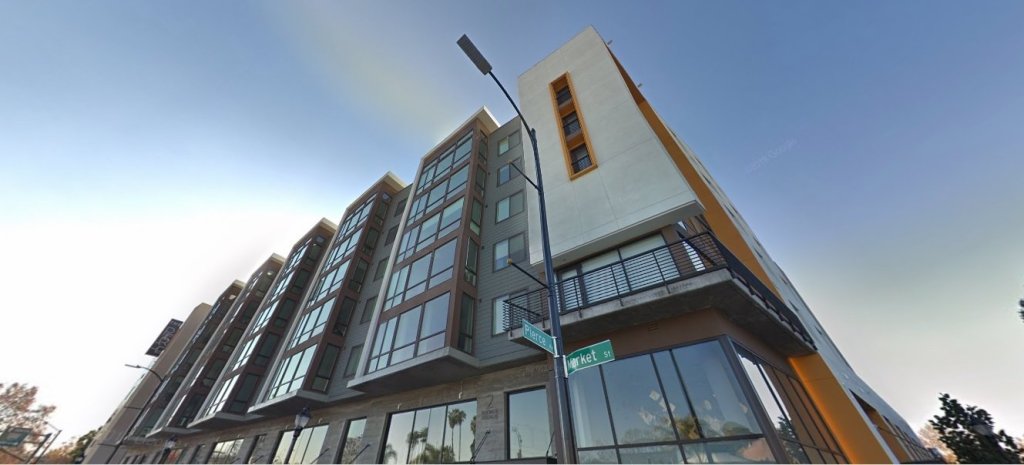By Don Babwin | Associated Press
CHICAGO — James Lovell, the commander of Apollo 13 who helped turn a failed moon mission into a triumph of on-the-fly can-do engineering, has died. He was 97.
Lovell died Thursday in Lake Forest, Illinois, NASA said in a statement on Friday.
“Jim’s character and steadfast courage helped our nation reach the Moon and turned a potential tragedy into a success from which we learned an enormous amount,” NASA said. “We mourn his passing even as we celebrate his achievements.”
One of NASA’s most traveled astronauts in the agency’s first decade, Lovell flew four times — Gemini 7, Gemini 12, Apollo 8 and Apollo 13 — with the two –——————————- riveting the folks back on Earth.
In 1968, the Apollo 8 crew of Lovell, Frank Borman and William Anders was the first to leave Earth’s orbit and the first to fly to and circle the moon. They could not land, but they put the U.S. ahead of the Soviets in the space race. Letter writers told the crew that their stunning pale blue dot photo of Earth from the moon, a world first, and the crew’s Christmas Eve reading from Genesis saved America from a tumultuous 1968.
But the big rescue mission was still to come. That was during the harrowing Apollo 13 flight in April 1970. Lovell was supposed to be the fifth man to walk on the moon. But Apollo 13’s service module, carrying Lovell and two others, experienced a sudden oxygen tank explosion on its way to the moon. The astronauts barely survived, spending four cold and clammy days in the cramped lunar module as a lifeboat.
”The thing that I want most people to remember is (that) in some sense it was very much of a success,” Lovell said during a 1994 interview. ”Not that we accomplished anything, but a success in that we demonstrated the capability of (NASA) personnel.”
A retired Navy captain known for his calm demeanor, Lovell told a NASA historian that his brush with death did affect him.
“I don’t worry about crises any longer,” he said in 1999. Whenever he has a problem, “I say, ‘I could have been gone back in 1970. I’m still here. I’m still breathing.’ So, I don’t worry about crises.”
And the mission’s retelling in the popular 1995 movie “Apollo 13” brought Lovell, Fred Haise and Jack Swigert renewed fame — thanks in part to Lovell’s movie persona reporting “Houston, we have a problem,” a phrase he didn’t exactly utter.
Lovell had ice water in his veins like other astronauts, but he didn’t display the swagger some had, just quiet confidence, said Smithsonian Institution historian Roger Launius. He called Lovell “a very personable, very down-to-earth type of person, who says ‘This is what I do. Yes, there’s risk involved. I measure risk’.”
In all, Lovell flew four space missions — and until the Skylab flights of the mid-1970s, he held the world record for the longest time in space with 715 hours, 4 minutes and 57 seconds.
Aboard Apollo 8, Lovell described the oceans and land masses of Earth. “What I keep imagining, is if I am some lonely traveler from another planet, what I would think about the Earth at this altitude, whether I think it would be inhabited or not,” he remarked.
That mission may be as important as the historic Apollo 11 moon landing, a flight made possible by Apollo 8, Launius said.
“I think in the history of space flight, I would say that Jim was one of the pillars of the early space flight program,” Gene Kranz, NASA’s legendary flight director, once said.
But if historians consider Apollo 8 and Apollo 11 the most significant of the Apollo missions, it was during Lovell’s last mission — immortalized by the popular film starring Tom Hanks as Lovell — that he came to embody for the public the image of the cool, decisive astronaut.
The Apollo 13 crew of Lovell, Haise and Swigert was on the way to the moon in April 1970, when an oxygen tank from the spaceship exploded 200,000 miles from Earth.
That, Lovell recalled, was “the most frightening moment in this whole thing.” Then oxygen began escaping and “we didn’t have solutions to get home.”
“We knew we were in deep, deep trouble,” he told NASA’s historian.
Four-fifths of the way to the moon, NASA scrapped the mission. Suddenly, their only goal was to survive.
Lovell’s “Houston, we’ve had a problem,” a variation of a comment Swigert had radioed moments before, became famous. In Hanks’ version, it became “Houston, we have a problem.”
What unfolded over the next four days captured the imagination of the nation and the world, which until then had largely been indifferent about what seemed a routine mission.
With Lovell commanding the spacecraft, Kranz led hundreds of flight controllers and engineers in a furious rescue plan.
The plan involved the astronauts moving from the service module, which was hemorrhaging oxygen, into the cramped, dark and frigid lunar lander while they rationed their dwindling oxygen, water and electricity. Using the lunar module as a lifeboat, they swung around the moon, aimed for Earth and raced home.
By coolly solving the problems under the most intense pressure imaginable, the astronauts and the crew on the ground became heroes. In the process of turning what seemed routine into a life-and-death struggle, the entire flight team had created one of NASA’s finest moments that ranks with Neil Armstrong’s and Buzz Aldrin’s walks on the moon nine months earlier.
“They demonstrated to the world they could handle truly horrific problems and bring them back alive,” said Launius.
The loss of the opportunity to walk on the moon “is my one regret,” Lovell said in a 1995 interview with The Associated Press for a story on the 25th anniversary of the mission.
President Bill Clinton agreed when he awarded Lovell the Congressional Space Medal of Honor in 1995. “While you may have lost the moon … you gained something that is far more important perhaps: the abiding respect and gratitude of the American people,” he said.
Lovell once said that while he was disappointed he never walked on the moon, “The mission itself and the fact that we triumphed over certain catastrophe does give me a deep sense of satisfaction.”
And Lovell clearly understood why this failed mission afforded him far more fame than had Apollo 13 accomplished its goal.
“Going to the moon, if everything works right, it’s like following a cookbook. It’s not that big a deal,” he told the AP in 2004. “If something goes wrong, that’s what separates the men from the boys.”
James A. Lovell was born March 25, 1928, in Cleveland. He attended the University of Wisconsin before transferring to the U.S. Naval Academy, in Annapolis, Maryland. On the day he graduated in 1952, he and his wife, Marilyn, were married.
A test pilot at the Navy Test Center in Patuxent River, Maryland, Lovell was selected as an astronaut by NASA in 1962.
Lovell retired from the Navy and from the space program in 1973, and went into private business. In 1994, he and Jeff Kluger wrote “Lost Moon,” the story of the Apollo 13 mission and the basis for the film “Apollo 13.” In one of the final scenes, Lovell appeared as a Navy captain, the rank he actually had.
He and his family ran a now-closed restaurant in suburban Chicago, Lovell’s of Lake Forest.
His wife, Marilynn, died in 2023. Survivors include four children.
___
AP Science Writer Seth Borenstein contributed to this report.
Originally Published:
<













